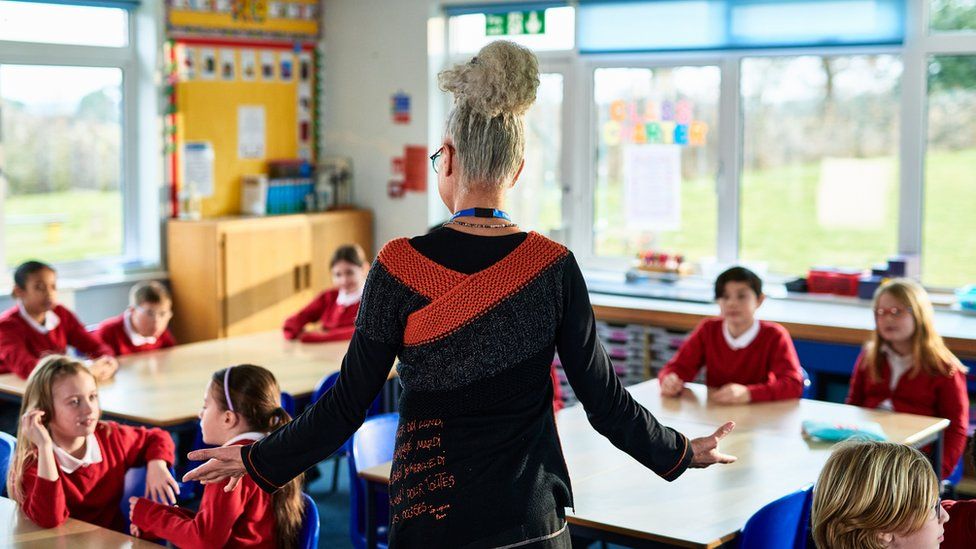ARTICLE AD BOX
 Image source, Getty Images
Image source, Getty Images
Schools in England should not teach about gender identity, according to new draft guidance from the government.
Government sources told BBC News about plans to ban sex education for under-nines, as well as teaching about gender identity, on Wednesday.
Confirming the plans on Thursday, Prime Minister Rishi Sunak said the new guidance would ensure children were not "exposed to disturbing content".
Some teachers have said there is no evidence of a widespread problem.
Teaching unions have said the review was "politically motivated".
Secondary-school pupils will learn about protected characteristics, such as sexual orientation and gender reassignment.
But the updated guidance makes clear schools "should not teach about the concept of gender identity", the government says.
It said it was right to take a "cautious approach", adding teaching materials that "present contested views as fact - including the view that gender is a spectrum" should be avoided.
The government is also strengthening rules to make it easier for parents to access teaching materials from schools, to see what their children are learning.
Announcing the guidance, Mr Sunak said: "Parents rightly trust that when they send their children to school, they are kept safe and will not be exposed to disturbing content that is inappropriate for their age.
"That's why I was horrified to hear reports of this happening in our classrooms last year.
"I will always act swiftly to protect our children and this new guidance will do exactly that, while supporting teachers to teach these important topics sensitively and giving parents access to curriculum content if they wish."
Other elements of the guidance include:
no sex education before Year 5, when children turn nine
additional content on suicide prevention for secondary-school pupils
a section on sexual harassment and sexual violence
advice for teachers about how to address misogynistic online influencers.
Speaking to BBC News on Wednesday, some parents welcomed the idea of restrictions on sex education.
But others pointed out a danger because if children could not receive information about certain topics from their teachers, they were more likely to take in potentially harmful content looking for the answers online.
Lucy Emmerson, chief executive of the Sex Education Forum, said: "If topics were to be restricted it will leave children even more dependent on getting answers about topics from pornography, coercive control and STIs [sexually transmitted infections] from online sources."
The draft guidance is now open to a nine-week consultation.
Once finalised, it will be statutory and schools will be expected to follow it.
What are the current RSHE rules?
Relationships education has been compulsory for primary schools since September 2020.
Children are taught about healthy, respectful relationships, focusing on family and friendships - including online and social media. They also learn about physical health, parts of the body, boundaries and puberty.
The government strongly encourages schools to include teaching about different types of family and same-sex relationships.
At secondary school, relationships, sex and health education is mandatory - and covers content on a wider range of key topics.
It includes sex, sexual relationships, consent, online abuse, domestic abuse and female genital mutilation.
In some cases, parents have a right to remove their child from some sex education lessons, but not from relationships education.
In Northern Ireland, relationships and sexuality education (RSE) is mandatory for all pupils. Schools can develop their own policies.
RSE has been mandatory in Welsh schools since 2022. Guidance to schools sets out which "developmentally-appropriate" topics should be covered from age three to 16.
In Scotland, the government is in the process of finalising updated guidance, after a public consultation in 2023.

 11 months ago
69
11 months ago
69








 English (US) ·
English (US) ·